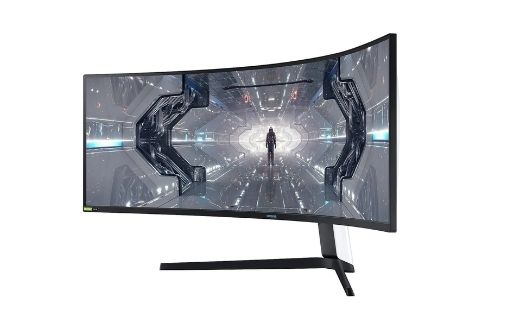Gaming monitors are great for playing games. They have high refresh rates, low response times, and can even have a curved screen to make them feel more immersive. However, can gaming monitors be good for work? Let’s find out.
Recommended: The Technological Background Behind Online Gaming

Are Gaming Monitors Good for Work?
Yes, Gaming Monitors are good for work.
They have a lot of features that make them great for work. They are designed to be ergonomic, so they feel comfortable and easy to use while at the same time having good viewing angles. The refresh rate is better (more than 60Hz) which allows you to play games like Overwatch or CS:GO without any lag whatsoever.
The response times on gaming monitors can also be quite low, typically under 5ms in order to provide an even smoother gaming experience as well as reduce motion blur when scrolling through web pages or documents using your mouse/keyboard. Gaming Monitors also have a lot of connectivity options.
They usually come with HDMI, DisplayPort, and VGA ports so you can connect them to your HDTV or computer monitor without having to use adapters. They are also very portable which makes it easy for you to take them from room-to-room as needed while at the same time being able to easily hook up multiple computers into one single display if desired (this is called daisy-chaining).
The only downside that I see with gaming monitors is their price point. In some cases, they cost more than $300 USD which can be a bit expensive.
However, if you look around and do some research on gaming monitors there are many models that cost under $200 USD which makes them much more affordable than their counterparts in the office monitor market (which typically start at around $300-$400). Gaming Monitors also have a lot of competition from other manufacturers such as Dell who offer great budget options with refresh rates upwards of 144Hz while still being quite inexpensive. You can look out for gaming monitor specials to get good deals.
If I had to pick one between gaming monitors or standard office monitors, I would probably go with Gaming Monitors because they usually have better refresh rates and a better response time (typically under 5ms).
Recommended: The Technological Background Behind Online Gaming
Difference Between Gaming and Office Monitors?
So now that you know what gaming monitors are and how they differ from office monitors, let’s take a closer look at the differences between them.
The first major difference is the refresh rate of each monitor. Gaming Monitors typically have higher refresh rates than their counterparts in Office Monitors which means they can display more frames per second (FPS). What does this mean? It means if your game needs to render 30 FPS then it will be able to do so on a gaming monitor with 120Hz or 144Hz whereas only 60 Hz would be possible on an office monitor without having any
input lag.
The second major difference is the response time of each monitor. The Response Time or input lag of a gaming monitor typically ranges from 1ms to 5 ms while office monitors usually have response times much higher than 3ms and can go up to 8-10ms as well.
What does this mean?
Basically, it means that if you are playing an FPS game on your computer then there will be no noticeable delay between when you press a button and when the action occurs in-game whereas with standard office monitors there can still
be a noticeable delay.
This means that if you are playing an FPS game on your computer and using a standard office monitor then you will have to move the mouse cursor much further than it needs to be moved (which can lead to mistakes).
Is It Worth Getting a Gaming Monitor?
The short answer is yes if you are a gamer and you play games on your PC, then you can benefit from higher refresh rates and faster response times. However, not all gaming monitors are created equal, so it’s important to know what features your monitor has before buying one.
